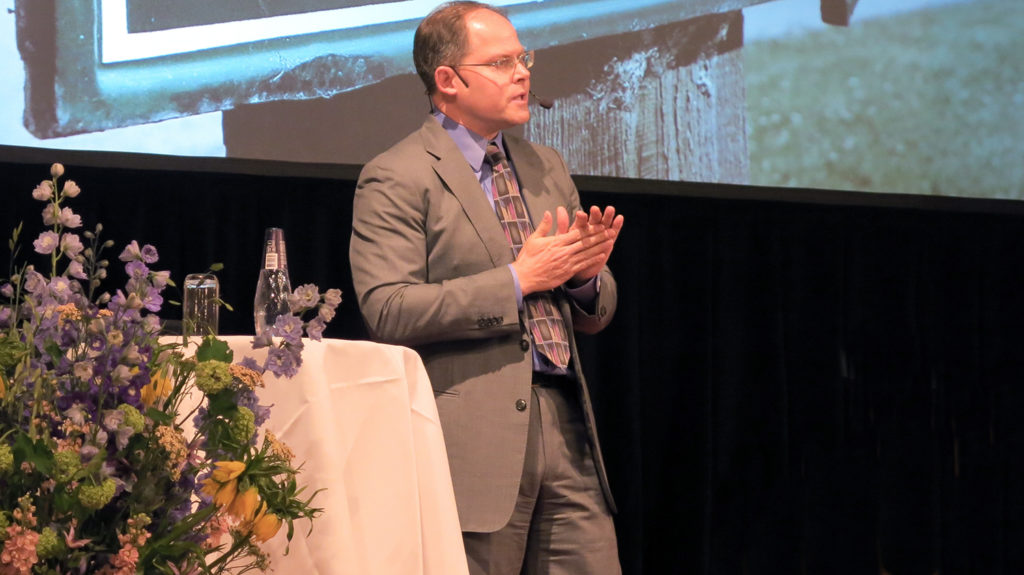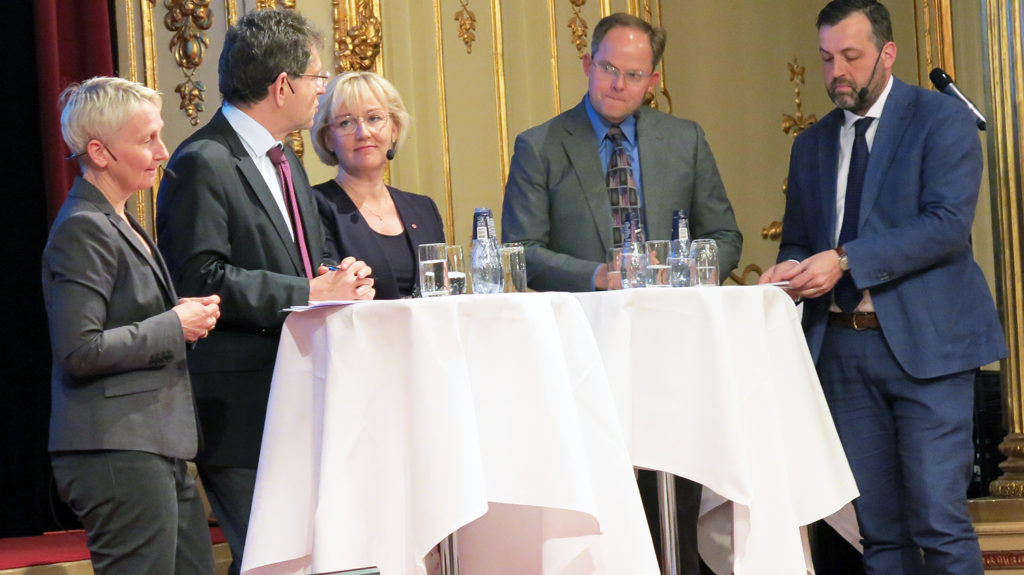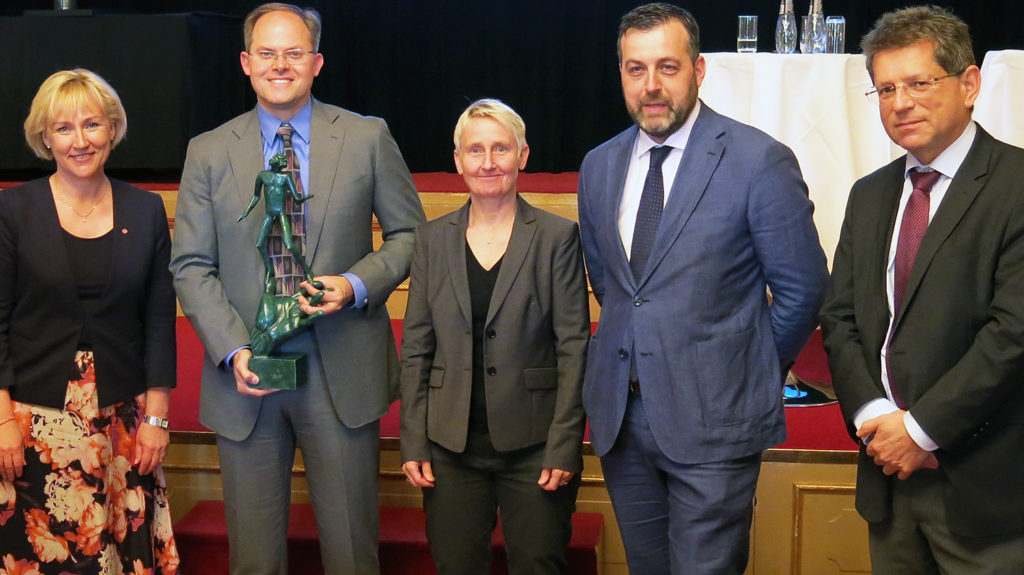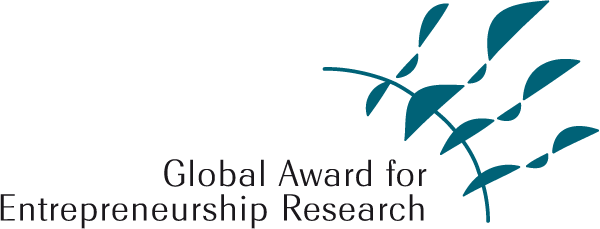Yale School of Management, Yale University
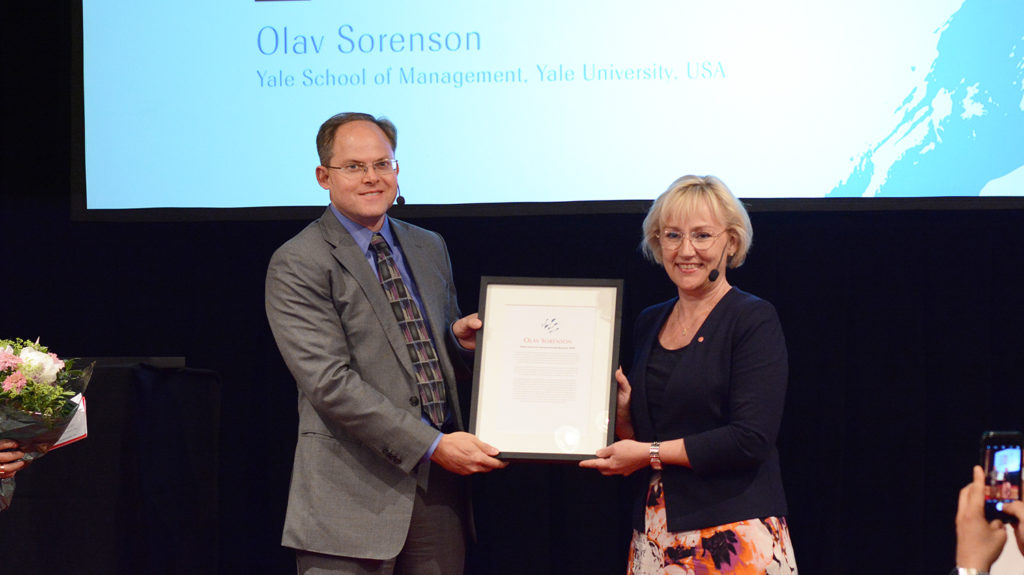
For showing how entrepreneurial activity and innovation are strongly embedded in socially and spatially bounded relationships.
Motivation
Professor Olav Sorenson’s outstanding contributions build on the notion that entrepreneurial activity and innovation are strongly embedded in socially and spatially bounded relationships. By combining insights from sociology, economic geography, and economics, he has provided new understandings that challenge established views on the microeconomic foundations of spatial formations, knowledge diffusion, and interactions among economic agents.
His foremost contributions in entrepreneurship and innovation research can be categorized into three fields: i) the geography of entrepreneurship, ii) social capital and entrepreneurship, and iii) the evolution of learning and innovation. Based on meticulous microeconomic data analyses, professor Sorenson’s work has brought new insights in all three areas.
Regarding the geography of entrepreneurial activity, professor Sorenson raised the following question: Why are organizations of similar types inclined to co-locate? Together with his colleagues, he pioneered the concept of home field advantage in explaining the localization pattern of new and young firms. By exploiting information advantages and established networks in home regions, he concluded that profound local knowledge may constitute an advantage that exceeds those traditionally associated with agglomeration economies. Additionally, links and proximity to family and friends have been shown to drive localization more than the regional economic characteristics, usually claimed to foster concentration of economic activities. These insights partly challenged and partly extended traditional economic theories of spatial agglomeration.
Another closely related issue concerns his research on the opposing forces of intensified competition due to agglomeration versus increased access to specialized services, such as venture capital providers, and how that impacts firms of different sizes and ages.
Turning to professor Sorenson’s research on the link between social capital and entrepreneurial activity, one of his main findings concerns the problem of endogeneity in building social capital. More precisely, entrepreneurs form networks and place trust in others on a strategic basis, thereby complicating efforts to trace causal effects from social capital to entrepreneurial outcomes. Together with his colleagues, Sorenson designed experiments and statistical methods on how to circumvent the endogeneity issue, emphasizing how networks evolve, as well as their origin. For example, when investors and entrepreneurs share a history of successful interactions, a positive association between repeated collaboration and startup performance may occur. This might happen once the process of investment is considered a mediating variable, even when there is no causal relationship.
Finally, our understanding of organizational learning, scientific discovery, and technological innovation has been advanced through professor Sorenson’s work. Building on the importance of interdependence among actors in the innovation process, Sorenson developed models of organizational learning that explain the relationship between scientific research and technological innovation. He shows how knowledge formation and diffusion is influenced by structural and behavioral properties in industries and regions (e.g., due to scientific misconduct or non-compete clauses). His analyses on patent citations and knowledge diffusion reveal that social proximity is most likely to be tied to citation under conditions of moderate knowledge complexity. When information is simple, social proximity is not a necessary mechanism of transmission; when it is very complex, transmission within an inventor’s social circles tends to fail.
You can listen to a podcast with Olav Sorenson here.
See a summary from the 2018 Award Ceremony.
Titles, dates and places given above refer to the time of the Award.
Documents
Olav Sorenson SBEJ Presentation Article.pdf
Olav Sorenson Biography.pdf
Olav Sorenson Prize Lecture.pdf
Olav Sorenson Press release.pdf
Photo Gallery
